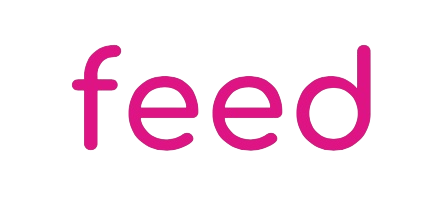
Working with food insecure families & infant feeding
Parenting is not plain sailing; it comes with a whole new set of challenges. When you add financial challenges on to the top of the pile, it can seem insurmountable for many families. At the moment, thanks to the cost of living crisis, many families are struggling to cover the basics, including food, and more and more are asking for help.
Ensuring families get the support they need to continue looking after themselves and their babies is the priority; every human has The Right To Food.
Feeding a baby when money and food is scarce is a unique challenge so we’ve compiled the most common questions we get from those of you who do the brilliant work of supporting families living in food insecurity, and provided information to support you, support families.
I work with mums and babies at risk of food insecurity, what can I do to help?
Recognition
Food insecurity is an increasing problem, but not everyone who is struggling to feed themselves and their families will have previously accessed health and social care services. Approaching food insecure families with dignity and compassion takes no extra time but could positively change the outcome for many. Listen, recognise the problem and actively support families who seek help.
Immediate support
Immediate concerns that should be addressed are to ensure a safe environment (this includes having somewhere warm to sleep, clothes etc) and nutrition. Work closely with the local authority and social services to understand their referral pathways, including contacts for office hours and out of hours. Local authorities should have their own pathways for supporting families in food insecure households with infants under 12 months by following UNICEF guidelines for local authorities. However, it's important to be familiar with local shelters, third sector organisations and food banks who can offer the range of services your families need in order to maximise access to food.
Referral for long term support
It may or may not be within your remit to support the family in the long term. However, you can signpost families to other organisations or sites that can help.
For help with basic rights, debt management and benefits you can refer to Citizens Advice in (England), (Scotland), (Wales) or (Northern Ireland). Health boards are also starting to develop financial inclusion pathways to help maximise income for those in need.
You could also refer the family to self support online, including the Entitled To calculator, Best Start Foods, Healthy Start, Universal Credit and a variety of other benefits schemes they can apply for.
I volunteer in a food bank, how can i help mums and babies?
Breastfeeding mothers, on average, require 500 calories a day to make and eject milk. This equates to 25% of the recommended average calorie consumption for women of 2000 calories per day. The energy demand for breastfeeding can be met by eating extra nutrient rich foods. You may wish to add extra food to packs being made up for breastfeeding mums and include foods high in calories, such as nut bars and other protein rich foods. You can also refer breastfeeding mums to local infant feeding teams and support groups for additional support.
Formula fed infants can also be supported safely by food and baby banks and we have developed best practice guidelines to support you in the provision of formula to families in crisis. Food banks can accept and provide formula to families in need as national and international laws governing infant feeding do not prohibit the acceptance and provision of formula to formula fed babies. First infant formula milk is suitable for infants from birth to 12 months, unless medically contraindicated and all brands of first infant formula are nutritionally equivalent. You can also refer formula feeding mums to local infant feeding teams and support groups for additional support.
Is breastfeeding affected by food scarcity?
Yes. Breastfeeding is a physiological process and requires a lot of energy.
On average, it takes 500 calories a day to make and eject milk. This equates to 25% of the recommended average calorie consumption for women of 2000 calories per day. The energy demand for breastfeeding can be met by eating extra nutrient rich foods, or from fat stores built up during pregnancy. When food intake is low, women who have built up fat reserves before and/or during pregnancy can use these stores. This means their milk supply will likely be maintained without the need for extra food. However, women who do not have adequate fat reserves will need a higher calorie intake (more than the recommended 300 extra calories a day for breastfeeding women) so will eventually need to eat more to maintain their milk supply.
Research shows women in food insecure homes often choose to initiate breastfeeding, but quickly switch to formula feeding for a variety of reasons. It's likely women in this situation will need MORE support with breastfeeding from their Health Visitor.
What nutritional supplements should be offered?
The NHS recommends that all breastfeeding women take vitamin D supplements, even if not exclusively breastfeeding. Free Healthy Start vitamin supplements are available from pregnancy until the baby's first birthday, or for the duration of breastfeeding; these contain folic acid, vitamin D and vitamin C.
All exclusively breastfed babies should also be given vitamin D supplement daily from birth, even if their Mum is taking vitamin D supplements. Babies having more than around 500ml (roughly a pint) of formula every day will have their vitamin D requirements met through their formula milk and don't require additional supplementation.
If the parent qualifies for Healthy/Best Start, they can get vitamin drops (with vitamins A,C AND D) for children age 0-3 years, as recommended by the deopartment of Health and social care.
Can formula feeds be made with no hot water?
If you are supporting a family struggling to boil water to make feeds, there is an urgent and serious requirement for immediate help. Best practice guidelines for making up powdered formula is to add the relevant volume of boiled water cooled to 70 degrees. This is to ensure any bacterial contamination in the powder is killed before the baby drinks the milk. Where a family does not have this capability, they should be provided with the necessary equipment or support or an alternative option.
Ready-made formula offers an alternative to powdered formula that doesn't require heating, but the downside is that it's much more expensive per feed. A supply may be required for the family in the short term whilst longer term solutions are sought.
What is the cheapest way to sterilise feeding equipment?
It's important to sterilise all feeding equipment - bottles, teats, pump parts etc - and the cheapest way to do this is by using cold water sterilising tablets or fluid.
Where can families get help accessing formula milk?
Increasingly parents are struggling to afford to buy infant formula milk due to the rising costs of living. As a result, guidelines for local authorities advise all local authorities to have an emergency formula provision pathway in place.
If help is required outside of working hours, emergency social services can be contacted. Communication with the family is key to ensure they feel supported, safe and not judged.
Other charitable organisations also provide emergency formula. Feed has developed an interactive map to help you find local food and baby banks that can support families struggling with food insecurity by providing emergency food packages, including formula, and signpost you to local services that can help families over the longer term.
At Feed, though we don't directly provide formula, we are always here to help and advise families and organisations where we are able.

